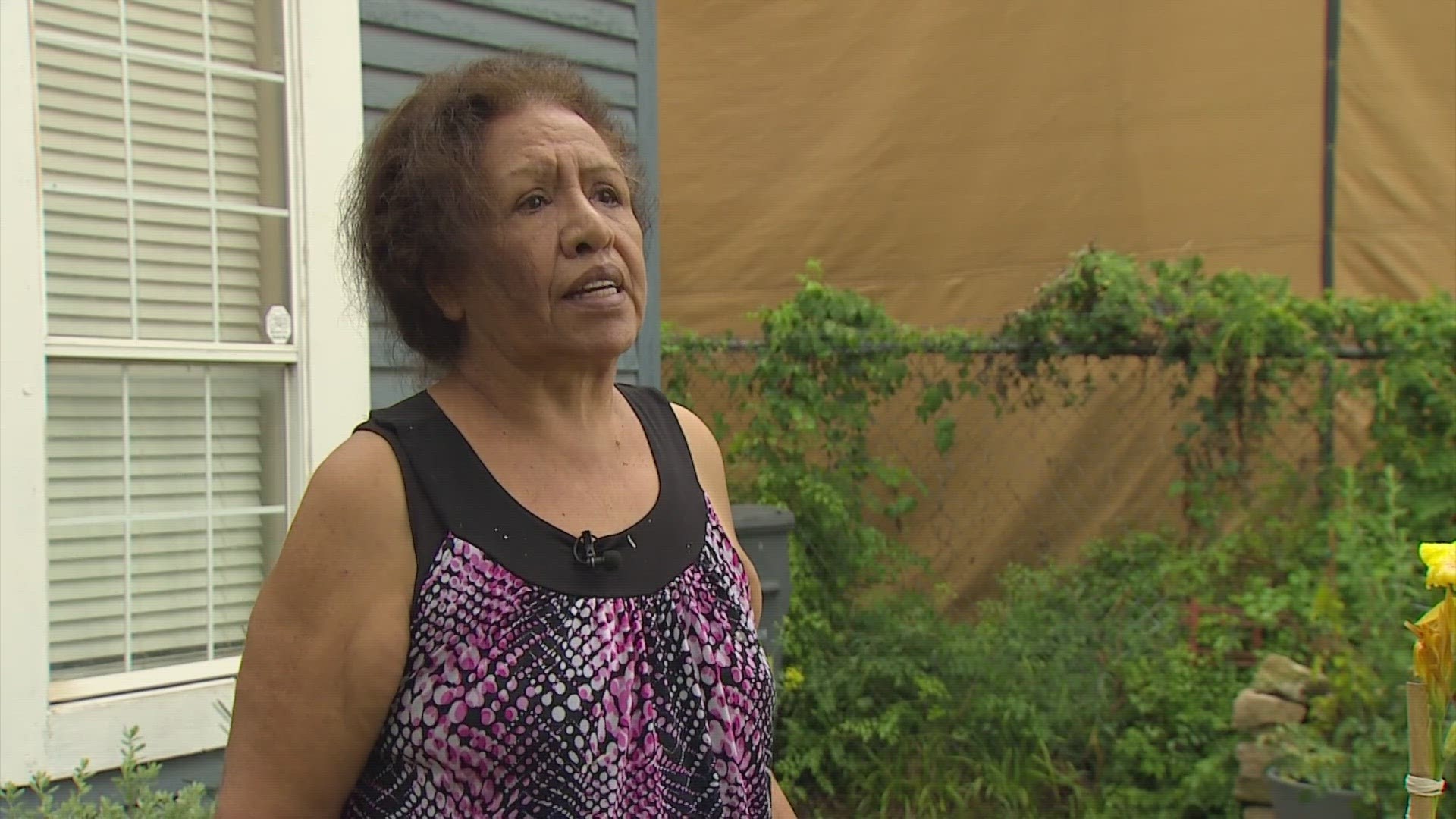DALLAS — For five years, Vicky Rios has lived with a City of Dallas construction project literally casting a shadow over her home and life.
There’s a large fence roughly 20 feet high surrounding the work to build a flood reduction tunnel, but Rios says the project itself is creating drainage issues that have already severely damaged her home.
“We don’t know what to do,” Rios, who’s lived in the home 26 years, said.
Her granddaughter, Alexis Rosales, has grown up with construction next door.
“There’s really nothing we can do about it,” she said. “Ever since the construction, water always built up right here behind me, so we always have to keep an eye out on it.”
The project is part of the Mill Creek Tunnel, a five-mile tunnel dug 150 feet underground with the goal of helping flooding issues from State Thomas to East Dallas. It was a major part of a previous bond package.
“It’s like over five years already,” Rios said. “I understand there’s two or three more years to go.”
The project’s completion, originally scheduled for this year, has been delayed until 2025, according to city officials.
Water was nearly chest-high at their home in September and insurance wouldn’t cover the damage.
“We have nothing because we lost everything,” Rios said. “That’s not fair. That’s not fair and somebody needs to do something and pay attention.”
Flood waters covered the street and got over their curb this past Sunday. They say the drains aren’t working and Rios tried cleaning one out herself.
Councilman Jesse Moreno, who represents the area of construction at North Carroll Avenue and Victor Street, said crews have since fixed drains preparing for more downpours.
“Unfortunately, that project has been delayed multiple times due to our contractor,” Moreno said. “I’m a little frustrated that we have not been able to deliver this project to our residents sooner.”
Rios says when there are overnight rain storms, she and her family struggle to sleep out of fear of more flooding.
“I feel that every time that it rains it’s just going to happen again. We’re just trying to prevent it,” Rosales said. “There’s no one to go to. There’s no one to call. No one calls us back.”

